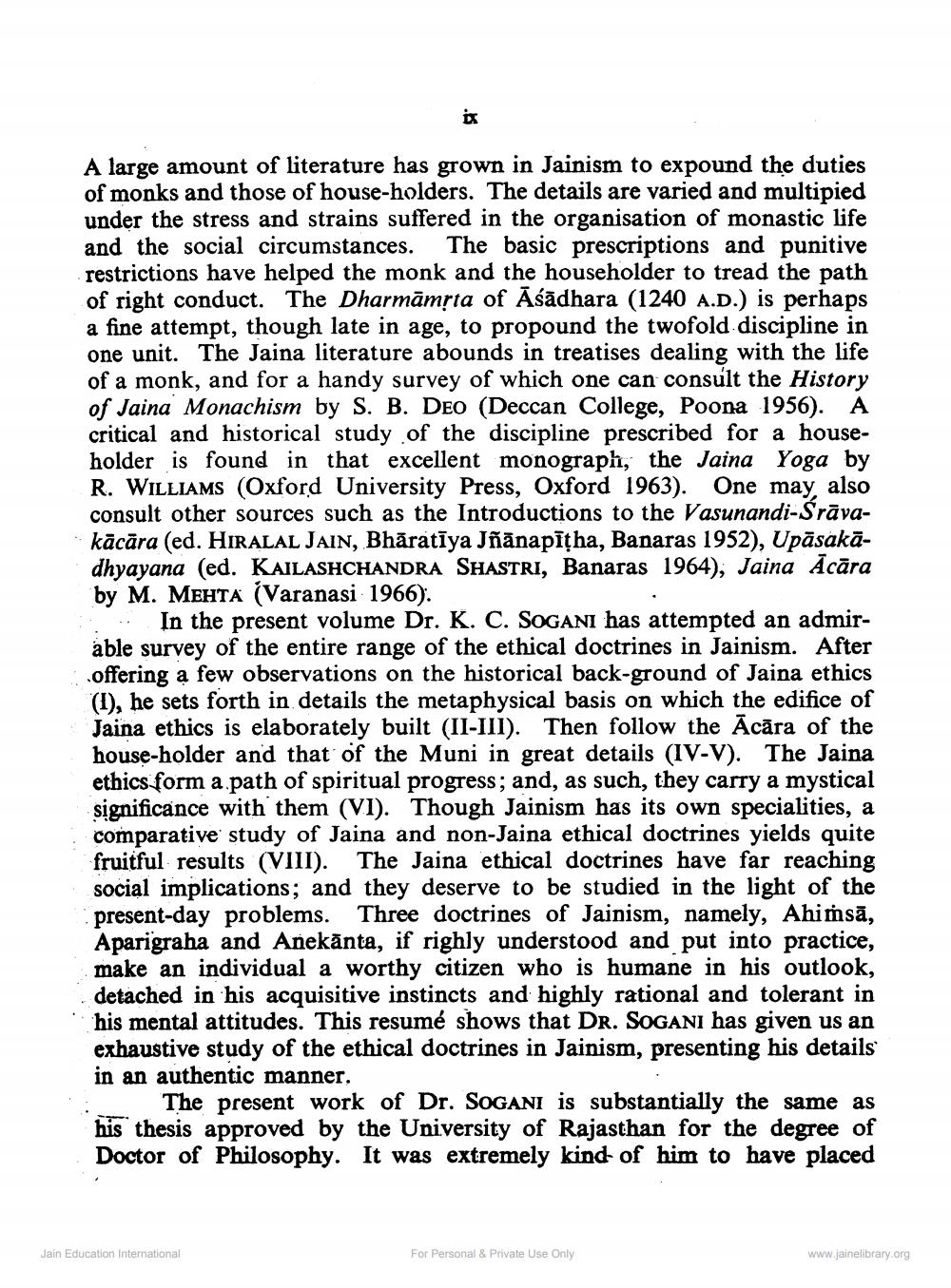________________
A large amount of literature has grown in Jainism to expound the duties of monks and those of house-holders. The details are varied and multipied under the stress and strains suffered in the organisation of monastic life and the social circumstances. The basic prescriptions and punitive restrictions have helped the monk and the householder to tread the path of right conduct. The Dharmāmsta of Āsādhara (1240 A.D.) is perhaps a fine attempt, though late in age, to propound the twofold discipline in one unit. The Jaina literature abounds in treatises dealing with the life of a monk, and for a handy survey of which one can consult the History of Jaina Monachism by S. B. DEO (Deccan College, Poona 1956). A critical and historical study of the discipline prescribed for a householder is found in that excellent monograph, the Jaina Yoga by R. WILLIAMS (Oxford University Press, Oxford 1963). One may, also consult other sources such as the Introductions to the Vasunandi-Srāvakācāra (ed. HIRALAL JAIN, Bharatiya Jñānapitha, Banaras 1952) dhyayana (ed. KAILASHCHANDRA SHASTRI, Banaras 1964), Jaina Acāra by M. MEHTA (Varanasi 1966).
In the present volume Dr. K. C. SOGANI has attempted an admirable survey of the entire range of the ethical doctrines in Jainism. After offering a few observations on the historical back-ground of Jaina ethics (1), he sets forth in details the metaphysical basis on which the edifice of Jaina ethics is elaborately built (II-III). Then follow the Ācāra of the house-holder and that of the Muni in great details (IV-V). The Jaina ethics form a path of spiritual progress; and, as such, they carry a mystical significance with them (VI). Though Jainism has its own specialities, a comparative study of Jaina and non-Jaina ethical doctrines yields quite fruitful results (VIII). The Jaina ethical doctrines have far reaching social implications; and they deserve to be studied in the light of the present-day problems. Three doctrines of Jainism, namely, Ahimsā, Aparigraha and Anekānta, if righly understood and put into practice, make an individual a worthy citizen who is humane in his outlook, detached in his acquisitive instincts and highly rational and tolerant in his mental attitudes. This resumé shows that Dr. SOGANI has given us an exhaustive study of the ethical doctrines in Jainism, presenting his details in an authentic manner. : The present work of Dr. SOGANI is substantially the same as his thesis approved by the University of Rajasthan for the degree of Doctor of Philosophy. It was extremely kind of him to have placed
Jain Education International
For Personal & Private Use Only
www.jainelibrary.org




